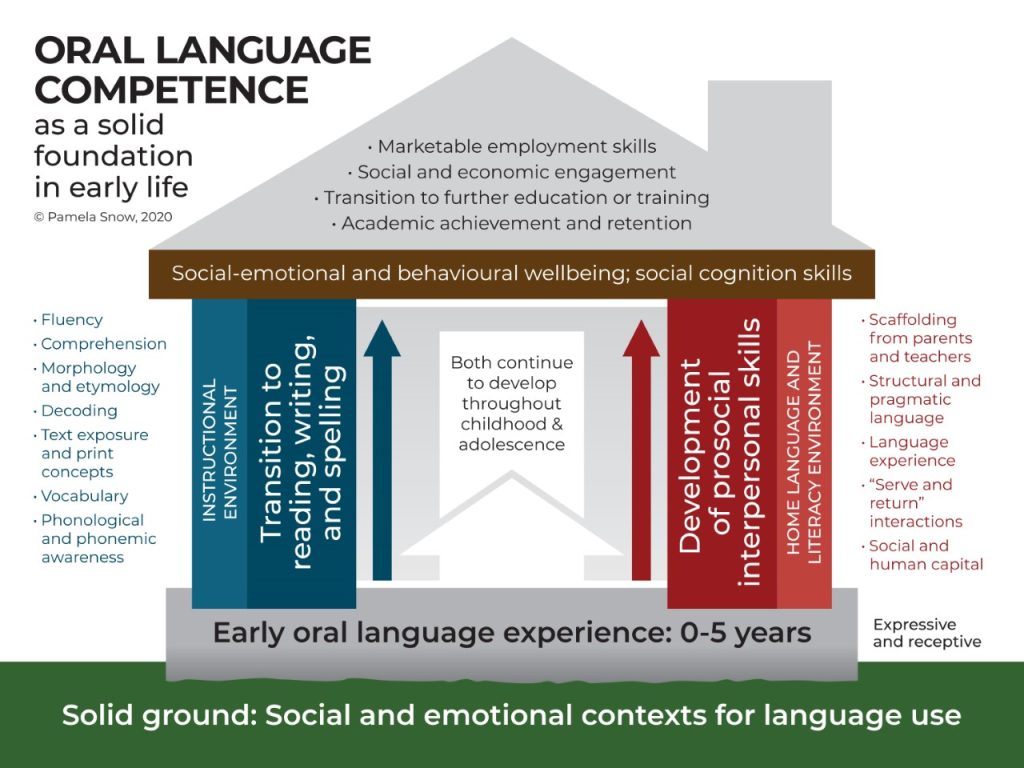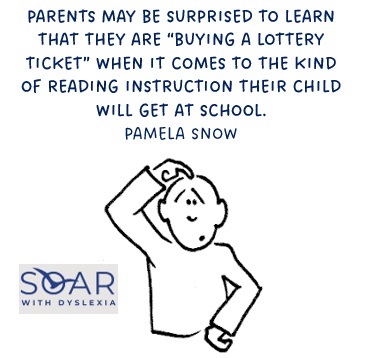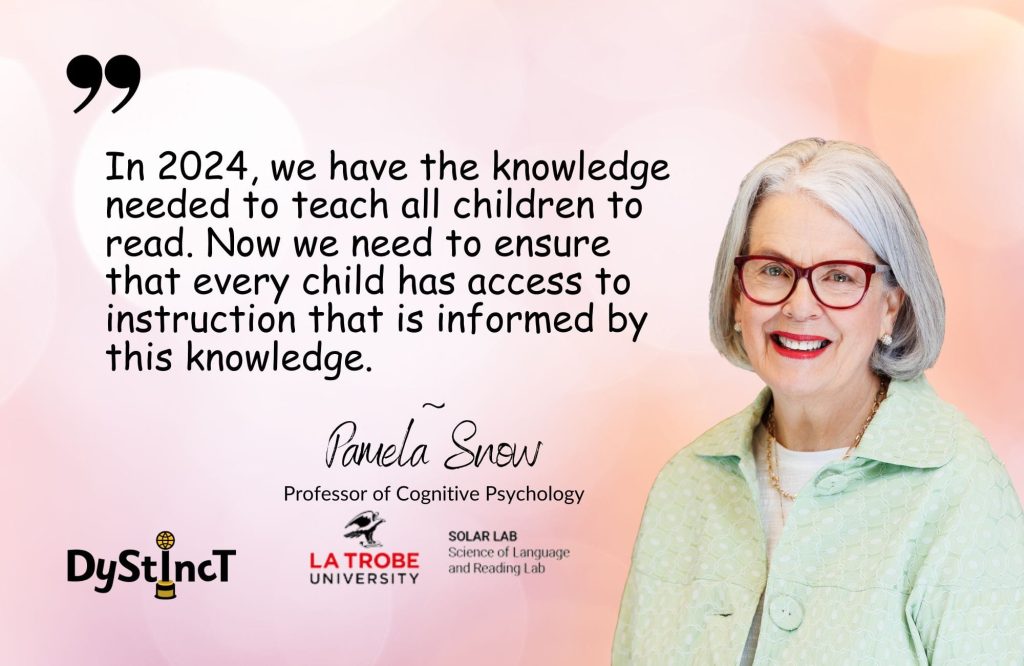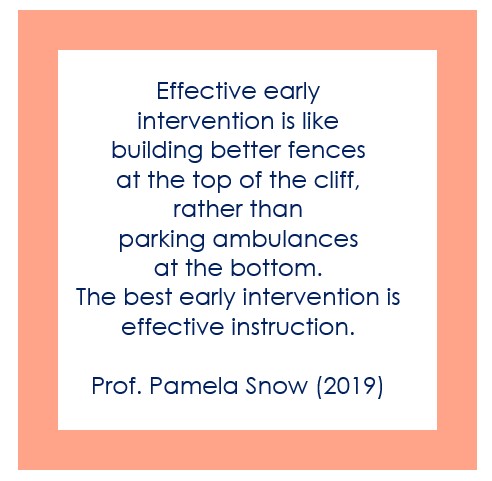I was beyond excited to see my idol, Dr Pamela Snow, listed in the AFR’s Power List in September! Her research on effective language and literacy instruction is robust and easily transferable to the classroom. It’s only shocking to think that not every Australian teacher knows who she is… yet!

Pamela Snow is uniquely qualified in two areas of expertise – speech pathology and cognitive psychology – both of which are highly relevant to education.
Dr Pamela Snow is a Professor of Cognitive Psychology in the School of Education at La Trobe University. She originally qualified in speech-language pathology before becoming a registered psychologist. Over the years, she has concentrated her research on understanding language and literacy competence in vulnerable children. The understanding of how these skills can profoundly affect youth has driven her projects to improve literacy instruction in Australian schools.
Dr Snow’s dual qualifications in speech pathology and psychology have strongly informed her research. She has authored or co-authored over 200 publications, comprising refereed papers, book chapters, monographs and research reports. Her research has been published in a wide range of international journals and she is frequently called upon to address education, health, welfare, and forensic audiences.
Pamela Snow can tell you exactly what role oral language competence plays as a mental health protective factor in children.
Seven years in public health research and teaching, seven years as coordinator of a postgraduate program for primary and secondary teachers, concerning high prevalence mental health problems offers Pamela Snow more clout than your garden-variety academic. Her active involvement in youth justice and leaving care projects drives the sense of urgency in imparting this knowledge to educators.
Pamela Snow can tell you exactly what works best in reading instruction and how to translate this into classroom practice.
“I argue that speech-language therapy has much to offer to the promotion of evidence-based early reading and writing instruction and support, given the linguistic nature of reading and the high comorbidity between language and reading difficulties and social-emotional disturbances in childhood and adolescence.”
Snow, P. C. (2020). SOLAR: The Science of Language and Reading. Child Language Teaching and Therapy, 26565902094781–. https://doi.org/10.1177/0265659020947817

Without apology, Pamela Snow can tell you exactly what does not work when teaching children to read.

“You may be told that the best approach is something with the reassuring name “Balanced Literacy”. But don’t be fooled. This is just Whole Language in a new dress. They both draw on a de-bunked set of ideas that originated in the 1970s and should have been completely retired by the 1980s, but sadly, they persist. Examples of such ideas and approaches include the so-called “Three Cueing” (or “Multi-Cueing”) strategy for beginning readers, remedial programs such as Reading Recovery, and the use of predictable, levelled readers in the early years (Vs using decodable texts for beginners).”
PAMELA SNOW: Open Letter to Student Teachers
If you have the experience Dr Pamela Snow has, then maybe you are a reading expert.
Working as a Learning and Support Teacher, my primary role is to support children with behaviour difficulties. I became aware that many of my students who were “acting out” also had literacy or learning difficulties. By providing literacy intervention, I could immediately see the improvement in their mental state and engagement in learning. Thankfully, this led to conversations about how we could change tier 1 instruction to reduce the reliance on intervention.
As a teacher, I want to know the best way to teach my students. I want to use strategies that promote social and emotional wellbeing. In particular, I want to give my at-risk students the best chance to thrive in life. I am not a reading expert. Knowing Dr Pamela Snow’s background and expertise, I’m completely comfortable following her lead.

The longer you have been teaching, the more important it is to update your understanding of the research on reading acquisition. I find it vastly more fulfilling to teach in a way that results in all my students succeeding!
During COVID, I completed the introduction to a Science of Language and Reading short course (SOLAR lab). It was comprehensive and pulled together all the pieces of knowledge I had acquired over the years into a cohesive framework. This course should be mandatory for all teachers – beginning and experienced. The longer you have been teaching, the more important it is to update your understanding of the research on reading acquisition. If I thought that my GP had not done the CPD on the most current evidence-based methods in medicine, I would be asking for my personal file!
Make no mistake, the future of our students is in our hands. Is your literacy instruction aligned with the most relevant, effective and evidence-based models in education?
ME (2024)

If this is the first time you have heard of Pamela Snow, then I encourage you to start by exploring her Snow Report. This isn’t a weather report from the snowy mountains, but rather a mountainous treasure trove of insightful advice and easily digestible research. Follow her on X, listen to her on podcasts or IRL at one of the many keynote sessions around Australia. Pamela Snow is not selling anything. She simply wants all teachers to have the knowledge she does about teaching reading to improve outcomes for all children in our country.
Powerful Vowels tools have been developed to support effective literacy acquisition as outlined by Cognitive Science. You can find a brief overview of Cognitive Science principals in literacy education on the Powerful Vowels website.


